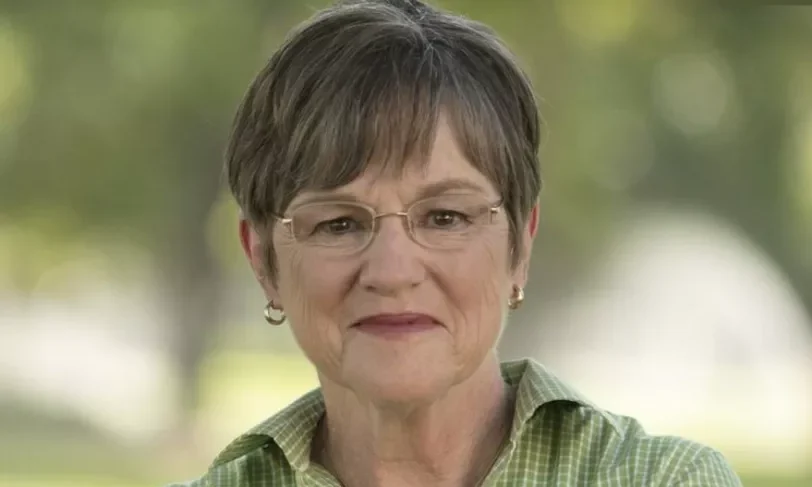Kansas Democratic Gov. Laura Kelly has vetoed a bill that would ban gender-affirming care for transgender minors, a decision that could spark a legislative battle as the Republican-led state legislature moves to override her veto. While the GOP majority in both chambers of the state legislature has pledged to attempt an override, it remains uncertain whether they will succeed, having failed to do so on a similar bill last year.
Senate Bill 63, the measure that Kelly rejected, would prohibit healthcare providers in Kansas from administering gender-affirming care to minors, including treatments such as puberty blockers, hormone replacement therapy, and support for socially transitioning, such as using preferred pronouns or clothing. This type of care is widely recognized as safe, effective, and essential by major medical associations, including the American Medical Association and the American Academy of Pediatrics.
Under the proposed legislation, transgender minors currently receiving gender-affirming care would be required to de-transition. The bill would also withhold state funding from healthcare professionals and institutions offering these treatments and threaten to revoke the medical licenses of those who do. In addition, it would allow patients, or the parents of minors, to file lawsuits against healthcare providers up to 10 years after the patient turns 18, claiming “professional incompetency,” “unprofessional conduct,” or “false advertising.”
In a statement issued Tuesday, Gov. Kelly strongly opposed the bill, calling it an infringement on parental rights and warning that it could have broader negative consequences for Kansas. “It is not the job of politicians to stand between a parent and a child who needs medical care of any kind,” Kelly said. “Infringing on parental rights is not appropriate, nor is it a Kansas value.”
Kelly further argued that the bill could harm the state’s economy and exacerbate ongoing workforce shortages. “This legislation will also drive families, businesses, and healthcare workers out of our state, stifling our economy,” she added. “It is disappointing that the Legislature continues to push for government interference in Kansans’ private medical decisions instead of focusing on issues that improve all Kansans’ lives.”
The veto sets the stage for a potential clash between Kelly and the Republican-controlled legislature. Senate President Ty Masterson and other Republican leaders have indicated they plan to quickly move to override the veto. “The Senate stands firmly on the side of protecting Kansas children and will swiftly override her veto before the ink from her pen is dry,” Masterson wrote in a post on social media platform X.
With a two-thirds majority in both the state Senate (31-9) and state House (88-37), Republicans have the numbers to override Kelly’s veto. However, the outcome of this override attempt remains uncertain, as a similar effort last year failed when two Republican representatives who had initially supported the bill voted against the veto override. At the time, Rep. Susan Concannon, a Republican from Beloit, explained that she had reevaluated her position on the bill after hearing concerns about its broad language, especially regarding treatments beyond surgery. “These decisions belong between the team of professionals and the parents,” she said. “The youth need our help, not government overreach.”
Opponents of the bill, including a coalition of healthcare professionals, have urged the legislature to sustain Kelly’s veto. Approximately 200 healthcare professionals signed an open letter addressed to the Kansas legislature, highlighting the potential harm the bill could cause to transgender youth. “It’s crucial to recognize that transgender youth are not making impulsive decisions, but rather engaging in a thoughtful process with the support of their families, mental health professionals, and medical providers,” the letter stated. “Banning essential health care for transgender Kansans under the age of 18 removes a crucial lifeline from these individuals and places them at risk of long-term psychological harm.”
The debate over gender-affirming care for minors has become a focal point in state legislatures across the country, with many Republican lawmakers advocating for restrictions on such treatments, citing concerns about the long-term effects and potential for regret. However, numerous medical experts argue that gender-affirming care is vital for the mental and physical well-being of transgender youth, who often face significant challenges such as discrimination, stigma, and mental health issues.
As the battle over Senate Bill 63 unfolds in Kansas, it serves as another chapter in the ongoing national conversation about the rights of transgender individuals, particularly minors, and the role of government in regulating healthcare decisions. With Kansas poised to become another battleground in this contentious issue, all eyes will be on the state legislature in the coming weeks as they determine the future of gender-affirming care for transgender minors in the state.

Recommended for you
He Photographed Naked Straight Men—And Changed Queer History Forever by Rainbow Media
The provocative art of physique photographer Dave Martin.
Read on Substack





